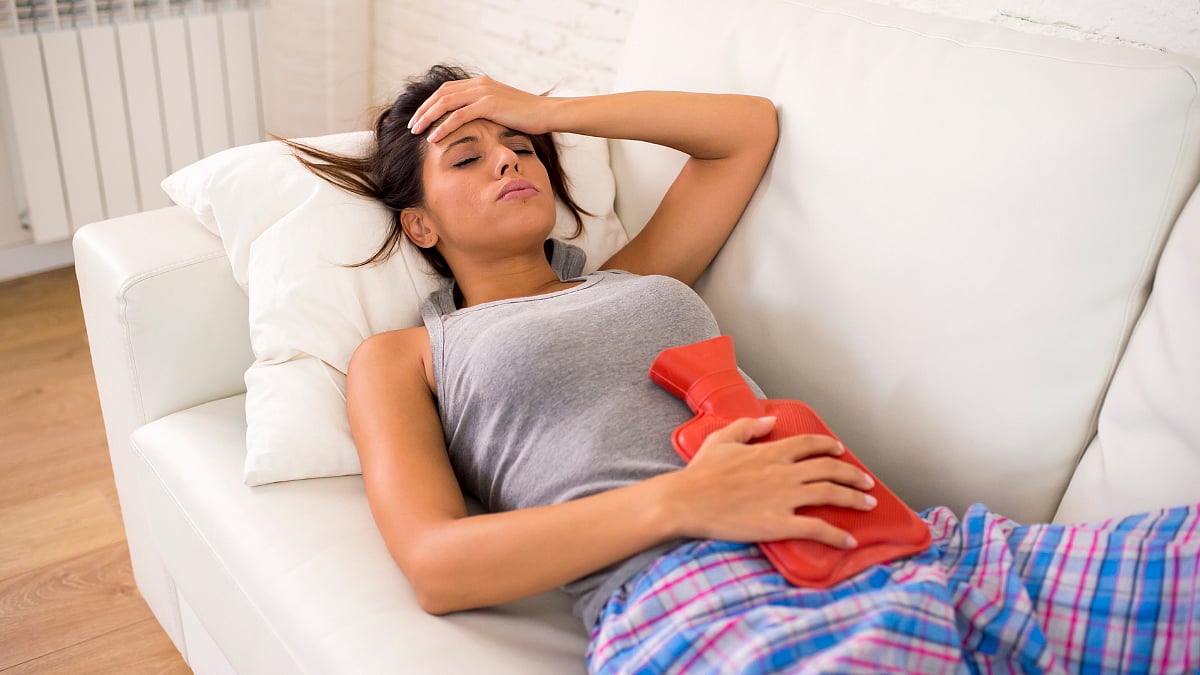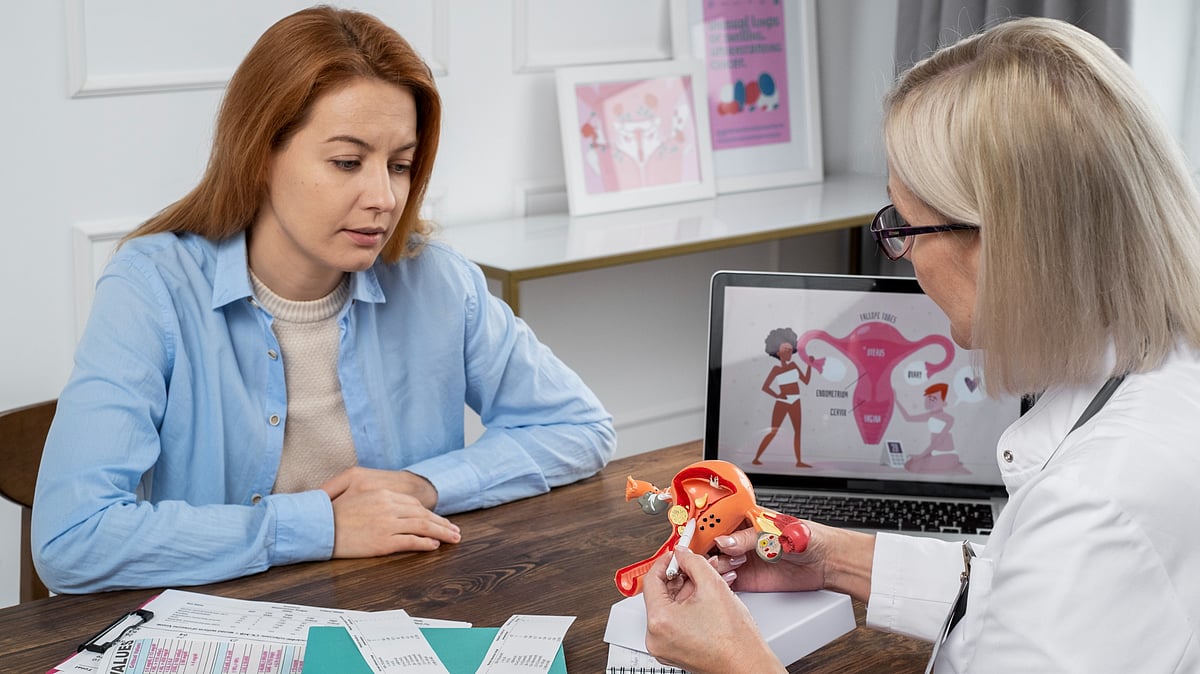Painful or irregular periods are not just uncomfortable — they can sometimes interfere with your daily life. Period pain, also called dysmenorrhea can be mild for some, but for others, it can be quite severe. It may also come with other symptoms like tiredness, nausea, or headaches.
Most people know what period cramps feel like—but not everyone knows why they happen. The uterus is a strong muscle. Each month, it builds up a soft lining inside in case a pregnancy happens. If there’s no pregnancy, the body doesn’t need that lining anymore, so it sheds it.
To push out the lining and menstrual blood, the uterus squeezes or tightens. These squeezes are called contractions, and they’re what cause cramps. They’re triggered by natural chemicals in the body called prostaglandins. The higher the level of these chemicals, the stronger the cramps.
If there’s more blood or clots to remove, the uterus may squeeze harder, which can make cramps more painful. In short, cramps are the body’s way of making sure the uterus is completely cleaned out each month.
In certain cases, painful periods may be linked to health problems. So how can you tell the difference between normal period pain and something more serious?
There’s no exact way to measure when cramps are “too much,” but if they stop you from doing normal things, don’t get better with painkillers, or match any of the situations below, it’s time to see a doctor.
Very Painful Cramps with Heavy Bleeding
Could be: Fibroids — non-cancerous lumps in the uterus. They can make bleeding heavier and cramps worse.
What to do: See a doctor for an ultrasound. You may be given low-dose birth control to ease pain, or surgery if the fibroids are large or in a tricky spot.
Constant, Dull Pain Even When You’re Not on Your Period
Could be: Pelvic Inflammatory Disease (PID) — an infection in the uterus, ovaries, or fallopian tubes, often caused by untreated sexually transmitted infections. It can also cause unusual discharge.
What to do: Get tested quickly. Antibiotics can treat PID, but if delayed, it can cause lasting damage and affect the ability to get pregnant.
Sharp Pain on One Side of Your Lower Stomach
Could be: A twisted ovary (ovarian torsion) or a burst ovarian cyst. Both can cause sudden, stabbing pain and sometimes nausea or vomiting.
What to do: Go to the emergency room immediately. A torsion usually needs surgery. A burst cyst might heal on its own or need treatment, depending on the severity.
Cramps That Don’t Go Away Even with Pain Medicine
Could be: Endometriosis — when tissue like the lining of the uterus grows outside it, often on the ovaries or fallopian tubes. This can cause severe pain and affect fertility.
What to do: Keep track of your pain, bleeding, and other symptoms, then share them with your doctor. Treatments like hormone therapy can help reduce pain and make periods easier to manage.
Strong Cramps After Getting an IUD (Intrauterine Device)
Could be: The IUD has moved out of place. Mild cramps after insertion are normal, but severe or long-lasting pain may mean it’s not positioned correctly.
What to do: Book a check-up. A doctor can check the IUD with a pelvic exam or ultrasound to see if it needs adjusting or replacing.
Cramps and Bleeding When It’s Not Your Period
Could be: An ectopic pregnancy or a miscarriage. In an ectopic pregnancy, a fertilized egg grows outside the uterus and cannot develop normally. Both can cause severe cramps and unusual bleeding.
What to do: If there’s any chance you could be pregnant, take a test. If it’s positive, see a doctor immediately — ectopic pregnancy can be life-threatening if not treated quickly.
It is important to note that not all cramps are “just period cramps.” If your pain feels different, is very strong, or comes with other unusual symptoms, get it checked. Acting early can protect your health — and in some cases, your ability to have children in the future.
(Dr. Kshitiz Murdia – CEO & Whole-Time Director of Indira IVF Hospital Limited)






